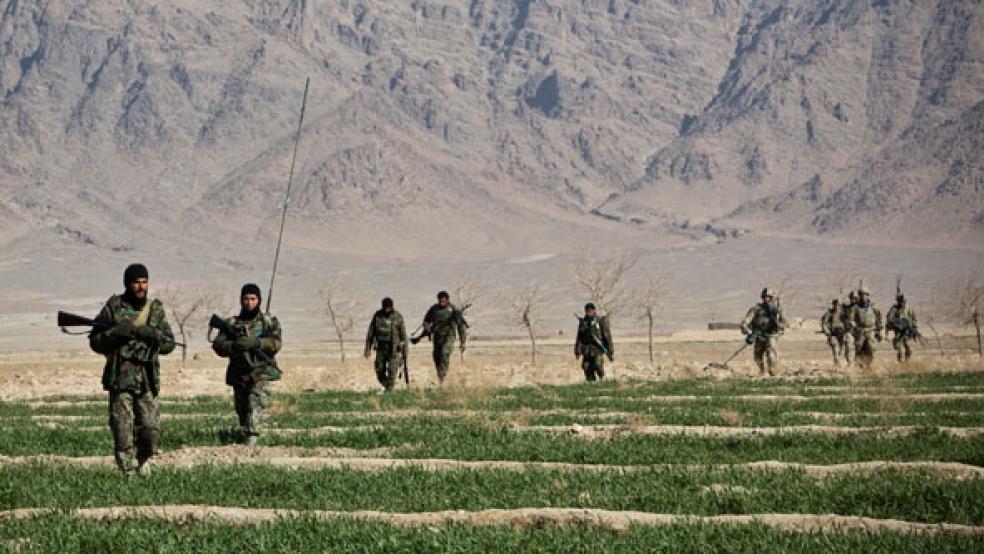On Thursday at a meeting of tribal elders, Afghan President Hamid Karzai threw another wrench into negotiations over a long-term security plan with the United States, saying that the deal would not be signed until next spring.
Addressing the elders, Karzai said, "If you approve this agreement, I want this agreement to be signed after the presidential elections [in April]. If you agree to sign this agreement with the Americans, we will ask for some time."
Related: Pentagon’s $1.5 Trillion Jet Punches Back
John Kerry has said that the U.S. wanted this deal signed as soon as possible, even by the end of the month. It remains to be seen if the prospect of delay is an attempt to win concessions from Washington or if Karzai is just doing it to win points at home.
What is clear, however, is that a deal will eventually get done. Karzai can’t risk losing American troops, or perhaps more importantly, American dollars. But an amendment buried in the National Defense Authorization Act could make it much more difficult for Karzai to get his hands on American cash.
Sen. Claire McCaskill has inserted an amendment that would prohibit the "use of United States funds for programs that cannot be physically accessed by the United States government civilian personnel." This means that if auditors from the Special Inspector General for Afghan Reconstruction (SIGAR) or USAID can’t get to a project, then no more money would be spent on it.
This amendment might have teeth. Although a dollar amount is not specified, tens of billions of dollars are expected to flow into Afghanistan under the terms of the security agreement. It explicitly states that the United States would be paying for all of the Afghan army’s expenses for the foreseeable future.
Related: Obama’s Zero Option Saves $111 Billion in Afghanistan
“The United States shall have an obligation to seek funds on a yearly basis to support the training, equipping, advising and sustaining of the Afghan National Security Forces (ANSF), so that Afghanistan can independently secure and defend itself against internal and external threats, and help ensure that terrorists never again encroach on Afghan soil and threaten Afghanistan, the region, and the world," the agreement states.
In addition, the United States is also on the hook for $34 billion on development projects and to prop up Afghan institutions. The Fiscal Times previously reported that the United States could save $111 billion by leaving the country completely at the end of 2014.
But inspectors are losing access to many of the sites where these dollars are being spent. According to SIGAR, the United States will only have oversight of 21 percent of the country next year. This is a steep decline from 2009, when the United States had oversight of 69 percent of Afghanistan. In 2011, this number was 59 percent; and this year, it was 45 percent.
The chart below shows just how little access SIGAR would have.

USAID is in a bind similar to SIGAR. According to Larry Sampler, acting assistant to the administrator in USADI's Office of Afghanistan and Pakistan Affairs, USAID has a $1.6 billion budget for projects in Afghanistan this year. .
“We probably can physically reach on a given day 30 to 50 percent of our projects,” he said in a recent interview. The United States has spent billions on projects that are now or soon will be out of the reach of inspectors. If the amendment survives, any future funding for these projects would be cut off, saving the United States an untold fortune.
Top Reads from The Fiscal Times:
- Reid Pulls the Trigger on the Nuclear Option
- DOD Builds $100 Million School for 1,260 Students
- Feds Are Targeting Unregistered Bitcoin Exchanges





